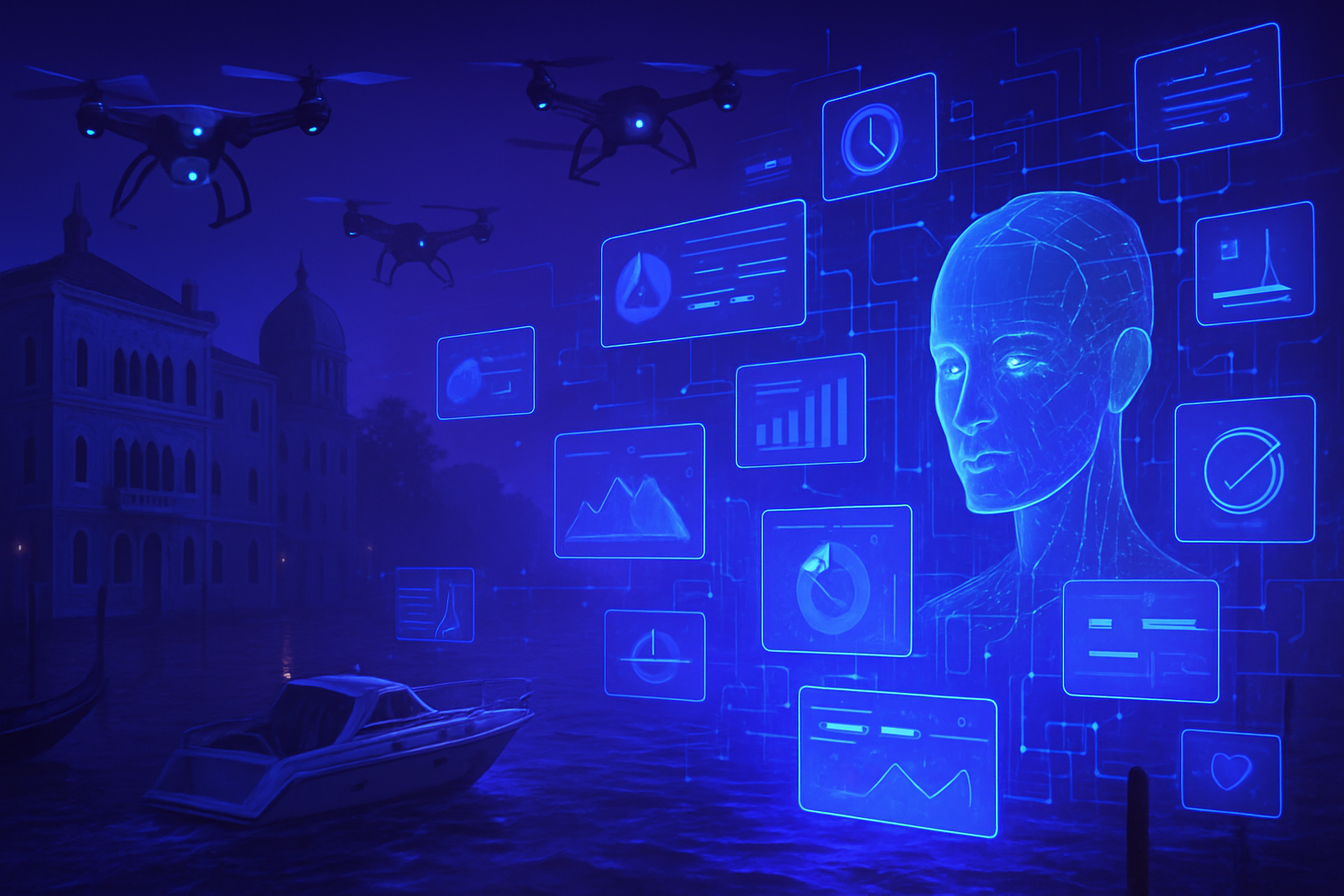The digital transition is rapidly transforming our browsing habits, but at what cost? Advances in AI are reshaping our experiences, often at the expense of our freedom to explore. Ubiquitous algorithms influence our choices and dictate how we navigate online spaces. Every click becomes data, relegating our preferences to the background. This constraint on our autonomy raises profound questions about the future of our independence on the internet.
A technology in flux
The spectacular advances in artificial intelligence (AI) are radically transforming our favorite browsing spaces. Originally designed to optimize the user experience, these technologies are now producing unintended consequences. Digital platforms, once regarded as places of freedom, are metamorphosing into environments monitored by intrusive algorithms.
Surveillance and privacy
The massive data collection by AI devices seriously threatens the privacy of internet users. Every interaction leaves a digital footprint, allowing AI to analyze and interpret user behaviors. The commercialization of this information leads to potentially serious violations of confidentiality, leaving users exposed to constant surveillance.
Algorithmic pressures and biased content
Recommendation algorithms influence user choices, often without them fully realizing it. This phenomenon creates a confirmation bias that reinforces preexisting beliefs. Users, then primarily exposed to similar content, reduce their opportunities to discover diverse perspectives. Platforms thus become echo chambers, limiting the convergence of ideas and opinions.
Algorithmic discrimination
Studies reveal that AI can perpetuate and amplify racially and socially discriminatory biases. Training algorithms on biased datasets fosters algorithmic injustice, disproportionately impacting minority groups. Consequently, content rooted in stereotypes fuels misconceptions and exacerbates social tensions.
Manipulations and propaganda
Social networks, shaped by AI, provide fertile ground for disinformation. The rapid spread of false news and manipulated images jeopardizes user trust. Potentially biased or misleading content spreads more easily, prompting virtual actions based on fallacious information.
Recent incident examples
A significant incident has been reported concerning widely circulated racist videos fueled by AI. This wave of harmful content has led to a deterioration of the quality of online social interactions, reinforcing negative stereotypes. Technology, once a servant of humanity, now seems to favor destructive behaviors.
Reactions and political initiatives
Voices are rising to regulate the use of AI. Legislators are examining proposals aimed at regulating algorithms and controlling their impact on users. The necessity for proactive legislation is becoming urgent in order to protect citizens’ rights in an ever-evolving digital environment, as demonstrated by the initiative mentioned by Trump regarding AI model regulation.
Future perspectives
The challenges surrounding AI require informed debate and constant vigilance. Experts recommend greater transparency regarding how algorithms function. The adoption of ethical practices could potentially mitigate harmful effects while restoring users’ sense of control over their digital experience.
Frequently Asked Questions about the harmful impact of AI on our favorite browsing spaces
What is the impact of AI on data privacy during browsing?
The use of AI often collects personal data to offer personalized experiences, which can compromise user privacy. Algorithms can track browsing habits and store sensitive information without clear consent.
How does AI influence the way we perceive information online?
AI algorithms tend to create filter bubbles by primarily showing content that aligns with user preferences. This can reduce exposure to varied perspectives and reinforce preexisting beliefs.
What is the relationship between AI and disinformation on the Internet?
AI models can rapidly generate and spread disinformation, making it harder to distinguish between true and false information on browsing platforms. This contributes to a less reliable online environment.
How does AI affect our user experience on websites?
While AI can optimize user experience, it can also create overly personalized experiences that exclude key information or alternative options, thereby limiting the diversity of choices available.
Can AI tools make our browsing spaces more dangerous?
Yes, AI-based tools can be used to conduct phishing attacks or other forms of cybercrime, making users more vulnerable to online threats.
How does AI impact the advertising we see online?
AI has revolutionized advertising targeting, but it can also mislead users by showing them ads that exploit their personal data, which could harm their browsing experience.
What solutions exist to mitigate the negative effects of AI on our browsing?
Using browser extensions that block trackers, reviewing privacy settings, and limiting the sharing of personal data are some of the solutions that can help protect your browsing experience from the harmful effects of AI.






